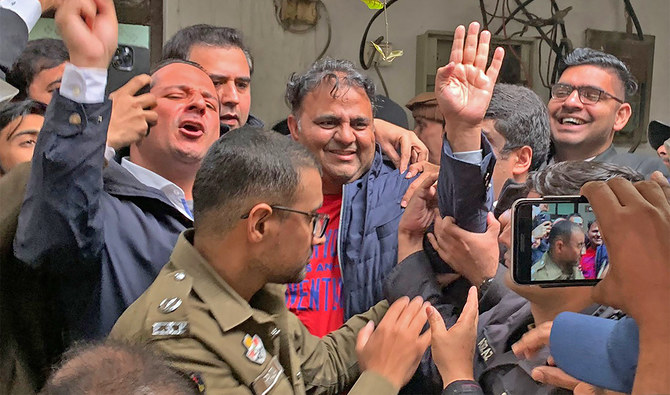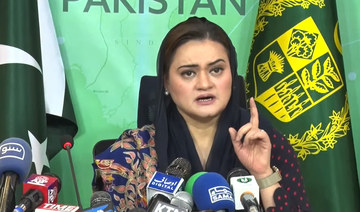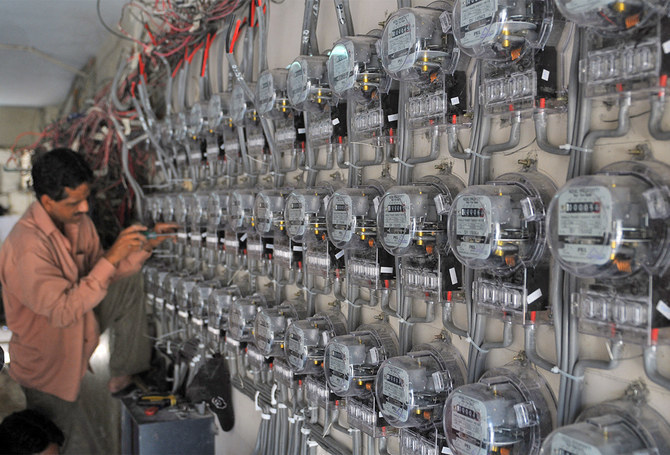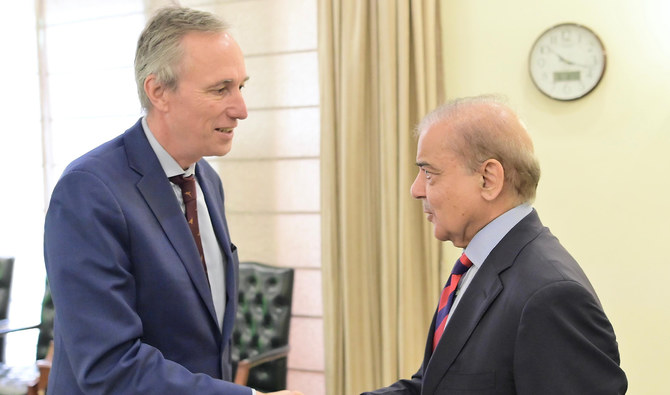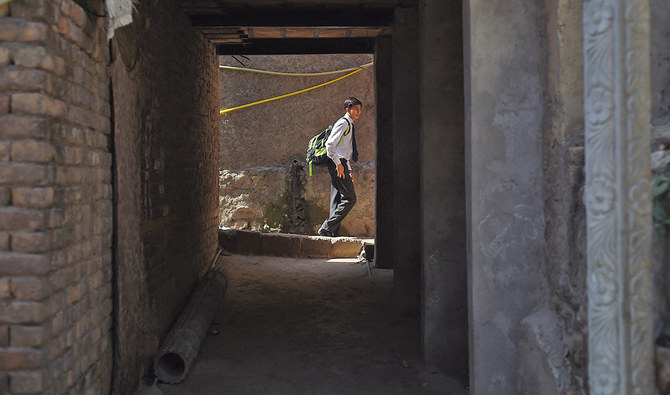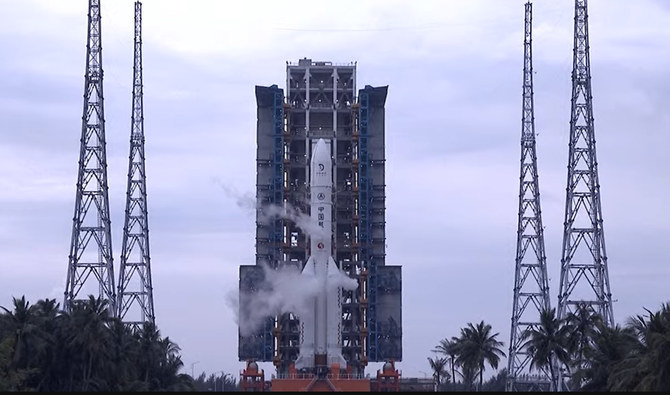ISLAMABAD: Chaudhry Fawad Hussain, a close aide to ex-premier Imran Khan, was arrested early on Wednesday morning in Lahore for alleged sedition, among other charges, over a complaint filed by the secretary of the Election Commission of Pakistan (ECP) accusing the former minister of ‘threatening’ members of the regulatory body, Islamabad police said.
Hussain’s arrest will pit Khan even more squarely against the Prime Minister Shehbaz Sharif government and the all-powerful military at a time of high political tensions and economic crisis in Pakistan.
Since being ousted from power in a parliamentary no-trust vote, Khan has refused to accept Sharif’s coalition government and campaigned for snap polls, holding protest marches and rallies across the country. In recent months, his relationship with Pakistan’s military, which is widely believed to have propelled his rise to the PM’s office, has also sharply deteriorated as he blames it, and its then army chief Gen Qamar Javed Bajwa, of being part of a foreign conspiracy by the United States to remove his government. Washington and the army deny the charge.
Hussain’s arrest was first reported at 616am on Wednesday morning when Khan’s Pakistan Tehreek-e-Insaf party’s official Twitter account published videos of “police cars” it said were taking away Hussain.
The police case filed against Hussain refers to an interview he gave to the 92 News channel in which the complainant, the secretary of the ECP, says the PTI leader had “threatened the chief election commissioner, other members of the election commission and their families through his speech and tried to obstruct the state’s election process.”
“A permanent threat has been created for the lives of election commission members and their families through this speech … The accused has tried to create a mutiny and differences among the state institutions, so that a wedge should be created between the public and the institutions.”
Charges have been filed against Hussain under sections 153-A (promotion of enmity between groups), 506 (criminal intimidation), 505 (inciting public mischief) and 124-A (sedition) of the Pakistan Penal Code.
Hours after his arrest, video footage shared by the PTI showed Hussain surrounded by police officers as supporters threw rose petals on him outside a lower court in Lahore. In response to a reporter’s question about why he had been arrested, the aide said, laughing, as he was led away by policemen:
“Because I have rebelled.”
Speaking from inside the courtroom, Hussain said the case against him was for “disrespecting” the election commission, which was being called “rebellion.”
“The election commission doesn’t want anyone to crticize it. Rebellion is an obligation in this country. The 220 million people of the country should come out and rebel against this system, otherwise your children will be crushed under this system.”
Referring to his handcuffed wrists, he added:
“These handcuffs are my jewelry.”
“SHADY CASE”
Khan and his party have in recent months been at loggerheads with the ECP and its current leadership, which they accuse of being biased in favor of the Sharif government. The ECP denies this. The regulator ruled against Khan in a case late last year related to his failure to disclose wealth earned from the sale of state gifts.
Taqi Jawad, a spokesperson for Islamabad Police, confirmed to Arab News that an FIR had been registered against Hussain at Islamabad’s Kohsar Police Station following a complaint from ECP Secretary Omar Hamid Khan.
“The police have been following the law and procedures to present him [Hussain] before the court of law for a remand,” he said, declining to disclose the exact location of the PTI leader and specify if he was still in Lahore or had been moved to Islamabad.
Hussain’s brother, advocate Faisal Fareed, said under the law, police was obligated to present him in the court within 24 hours of the arrest: “This is a shady case and we will fight it out in court.”
Responding to a petition filed against Hussain’s arrest by a family member, the Lahore High Court directed Punjab Advocate General Chaudhry Muhammad Jawad Yaqub to produce Husain in court even if “he has reached Islamabad”.
But media widely reported that police had already shifted Hussain to Islamabad. Later, reports stated that the high court dismissed the petition to "recover" Hussain after it was informed that a magisterial court in Cantt Lahore approved Fawad's transitory remand.
The court ruled that the plea was no longer admissible as police had not taken any "illegal" action against the former minister, local media reported.
Just hours before his arrest, Hussain had held a press conference outside Khan’s Zaman Park residence in Lahore where PTI supporters had gathered in the night between Tuesday and Wednesday morning amid widespread speculation that the ex-PM might be arrested.
In strongly-worded remarks, Hussain called on police to arrest Khan if they had the “courage and audacity”:
“The PTI’s plan of action [if Khan is arrested] is that there will be protests across Pakistan, we will lock down all cities of Pakistan, Pakistan’s public is standing behind the biggest leader in Pakistan, and god willing, they will get the kind of reaction, the plan of action that they can’t even imagine.”
At 525am, Hussain posted a video on Twitter, showing supporters gathered outside Zaman Park. Media widely reported that he left soon after for his house in Lahore and was arrested from outside the residence.
Hussain’s arrest comes months after another close Khan aide, Dr. Shahbaz Gill, was arrested by police and accused of inciting mutiny against the military. Gill is out on bail. Another PTI leader, Senator Azam Swati, was also arrested and released on bail in multiple cases, including for posting tweets considered to be anti-military.
Analysts say Khan, who was brought to power in a 2018 election with what is widely believed to be the military’s support, had fallen out with the powerful generals in his final months in office. In a recent interview, Khan said his party had “no relationship” with the new army leadership under General Asim Munir, who was appointed the new chief of army staff late last year.



